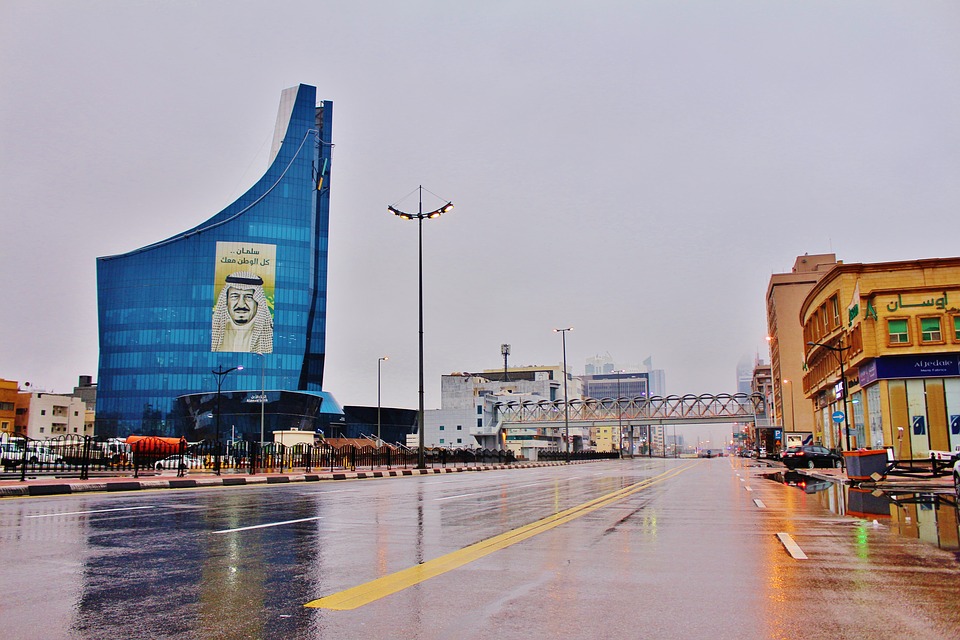Earlier, Saudi Arabia could manage to run the economy even on zero taxes, thanks to the presence of crude oil in the country and the escalating costs of petroleum products.
But the year 2014 changed all this. Oil prices fell to half in quick time owing to glut, and the oil revenue of the kingdom has been shrinking since then. The much-talked-about crown prince of Saudi Arabia, who often makes headlines for his bold, sometimes knee-jerk, reforms, has outlined a ‘Vision 2030’ where oil isn’t the lead protagonist. The economy, he foresees, will be driven by other sectors including tourism and innovation in renewable energy.
In this article, let us decode where the kingdom is heading in the short-run.
- The dependence on oil likely to reduce further
It was the excessive supply by oil economies that have led to a reduction in oil prices since 2014. This hugely impacted the dependence on oil revenue for the countries rich in oil reserves. However, it is envisaged that oil-based economies will be hit further owing to the overall global emphasis on clean fuel and renewable energy sources. Moreover, the emergence of electric cars will impact oil demand to a great extent.
- High inflation and higher taxes
Inflation has remained high and a 5 percent VAT on goods and services including food, water, fuel and electronic items will only up the miseries of people who are reeling under job cuts and near-zero salary increments.
- Budget deficit likely to continue for 5 more years
It can be hard to believe that the nation which supplies most of the oil to the world and influences its global production and pricing has been running a budget deficit, which is likely to stay for at least next five years. For the first time, Saudi residents will have to shed more money on account of value added tax, which is set to be applicable from next fiscal year.
- No more the dream destination for migrant workers
As the world’s largest exporter of oil, the West Asian country boasted of an extremely high standard of living of its citizens. The migrant labourers could also find ample work opportunities in the kingdom where local populace can survive without tough labours.
But one fact is clearly out in the open now – the post-oil Saudi Arabia is no more the dream destination for migrant workers and the leisure time for citizens is almost over. Through ‘Vision 2030’ Saudi Arabia is aggressively pushing ‘Saudi First’ policy in the jobs market.
Steps taken
- Diversifying into non-oil sectors
Saudi Arabia is contemplating increased earnings from non-oil sectors, something recommended by the International Monetary Fund and following which taxes on tobacco products and soft drinks have been introduced.
- Increased capital spending to fuel capital growth
The latest budget highlights how the government plans to raise non-oil revenues and spend on infrastructure after years of austerity measures that have badly hurt corporate growth. In its largest-ever budget, Riyadh plans to spend $261 billion in 2018.
Other key optimistic budget announcements include an increase in capital spending by 13 percent in next fiscal and a hope that contraction of the economy in 2017 is set to be reversed in 2018 with 2.7 percent growth, along with the commitment of 72-billion-riyal stimulus package.
- Higher tax revenue through VAT but nil income tax policy to stay for now
Expatriate workers who make up more than a third of the population of Saudi Arabia may be hurt with the imposition of VAT, but they can find solace in the fact that nil income tax policy for both Saudi citizens as well as foreign nationals is to stay, at least for the time being.
- Shifting away from ultra-conservative image
The kingdom willing to shift from its ultra-conservative image toward being a country with an inclination towards moderate Islam and acknowledgement of human rights and liberties. This will make the kingdom more open to business and foreign companies. Saudi Arabia recently lifted its ban on driving for women and has unveiled the ambitious concept of a futuristic city
Suvipra view
All measures indicate that the kingdom is executing its rhetoric in real terms and the prolonged dependency on oil revenues can end given that reforms are planned wisely.
Also read: Brexit moves to phase two-Loss to Indians or Opportunity?
Disclaimer – The views or opinions expressed in the article are the personal opinions of the author and do not in any way reflect the views of Suvipra except where specifically mentioned. Suvipra does not assume any responsibility or liability for the same.
To get your article published on Suvipra.com, refer our guidelines Guidelines
Contribute article Contribute








